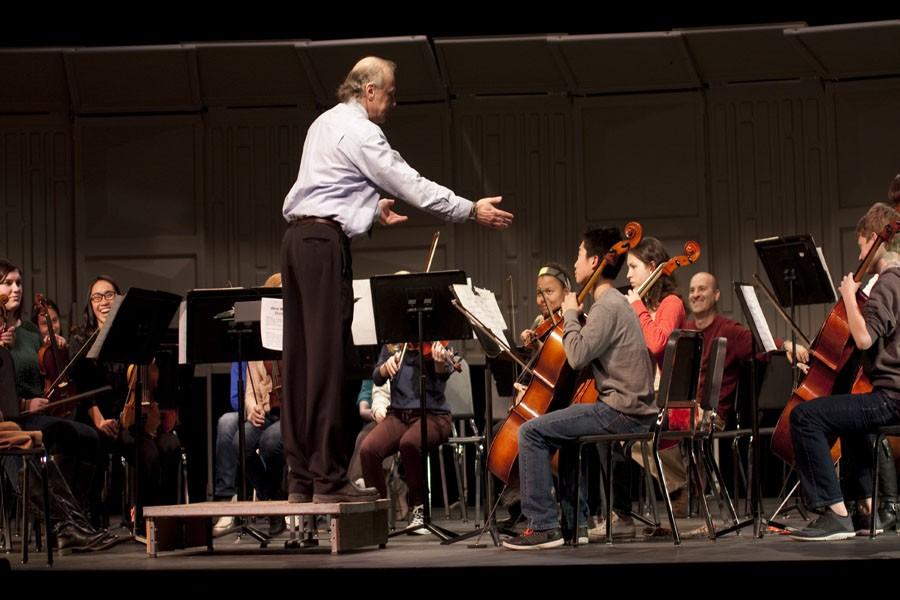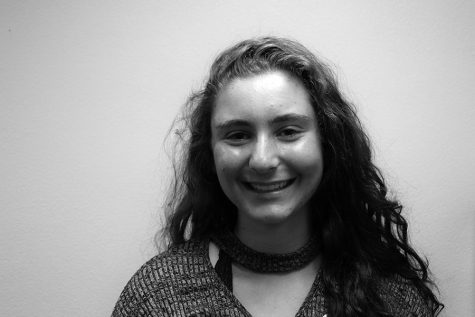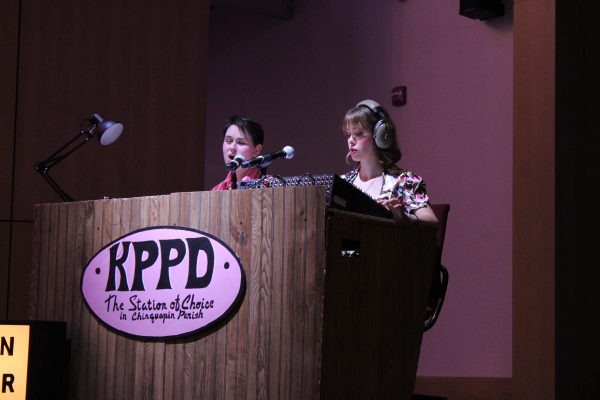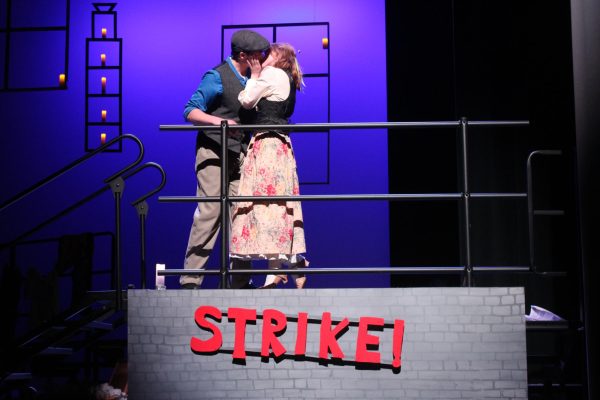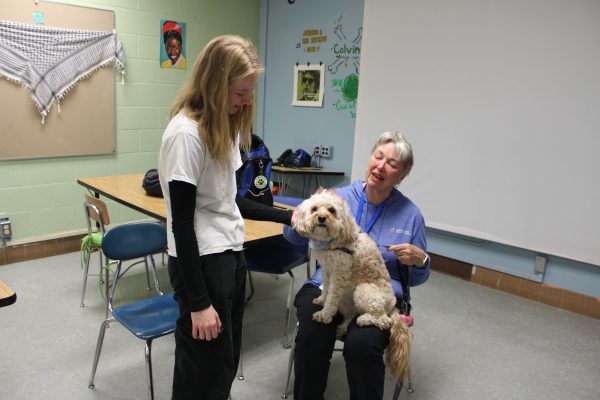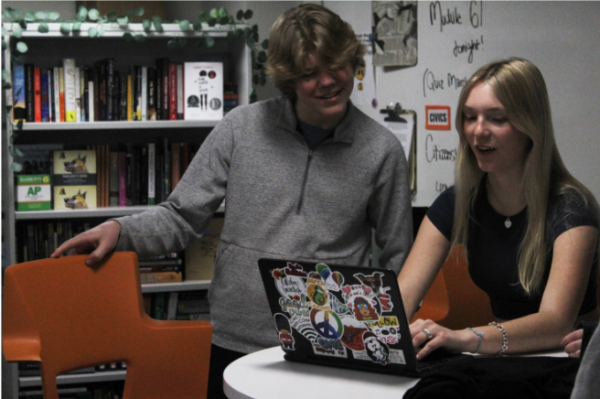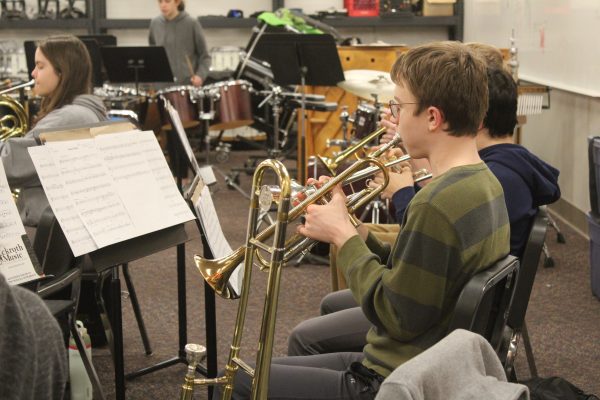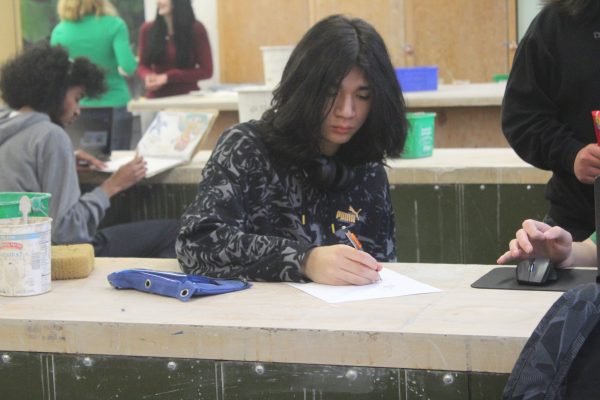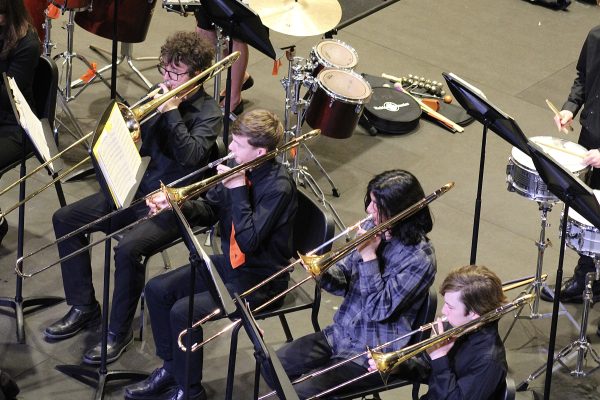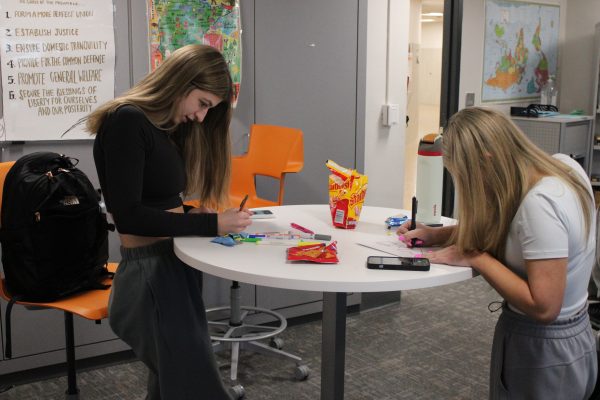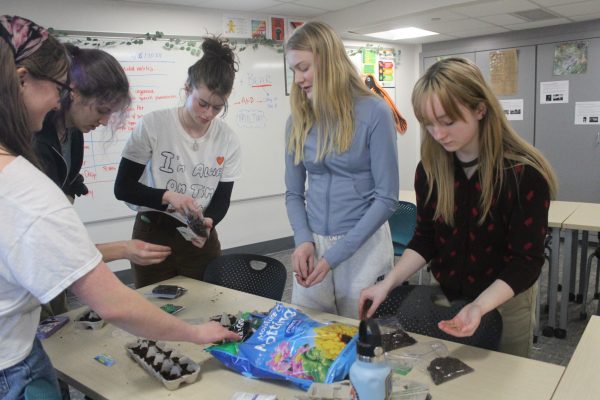Musical professor works with orchestra
Musicians attend conference to improve skills
Clinician Douglas Diamond directs a school orchestra at the St. Louis Park High School auditorium for the West Metro orchestra conference Feb. 9.
February 19, 2016
When sophomore Rachel Laing walked into the auditorium, she felt fortunate to have the opportunity to work with a professional musician.
Six schools from all over the Twin Cities gathered at Park Feb. 9 to take part in the West Metro orchestra conference.
The conference provided a learning experience for student orchestras all over the Twin Cities, according to orchestra teacher Miriam Edgar.
“We are in the West Metro conference; those are all of the schools that we have sports with. It also works that way with music; so we have specific events that happen throughout the year. One of those things that happens is the orchestra festival,” Edgar said.
Edgar said schools in Park’s conference, such as Cooper and Chaska, traveled by bus to learn from a professional clinician, Douglas Diamond.
“His (Diamond’s) job is to fix orchestras. He is very very good to have as a clinician because he knows how to break things down and work with students,” Edgar said.
According to Edgar, Diamond has directed orchestras at Grinnell College and Luther College. Diamond currently works at Augsburg College as an assistant professor and also travels to public schools to help student orchestras.
Edgar said that once Diamond arrived, he started tuning and working with each school’s orchestra, making them better and adding his professional advice.
“He has a good way to convey the message that he is trying to get across. A lot of the time he will make silly actions or strange noises and even though it is weird it gets the message across (and) the kids can do it,” Edgar said.
Sophomore Rachel Laing said Diamond helped the orchestra improve their sound by using some of his techniques.
“One main thing he helped us with was our sound. He really helped with a few measures by getting us to play softer so you could hear other sections of the orchestra better,” Laing said.
According to Laing, the conference was a fun experience where she could learn from other school’s orchestras, and gain new perspectives.
“It was good to get another perspective and have a different point of view on how we can play the piece,” Laing said.
According to Edgar, students were able to attend the conference at a cheaper price because the six conference schools divided the cost of the clinician.
“Clinicians tend to be very expensive, and so if we have all six schools with orchestras coming together, it’s nice because with the conference paying for it, not only does everybody get time with the clinician, but if you divide it up, it’s much cheaper to go in on it all together,” Edgar said.



